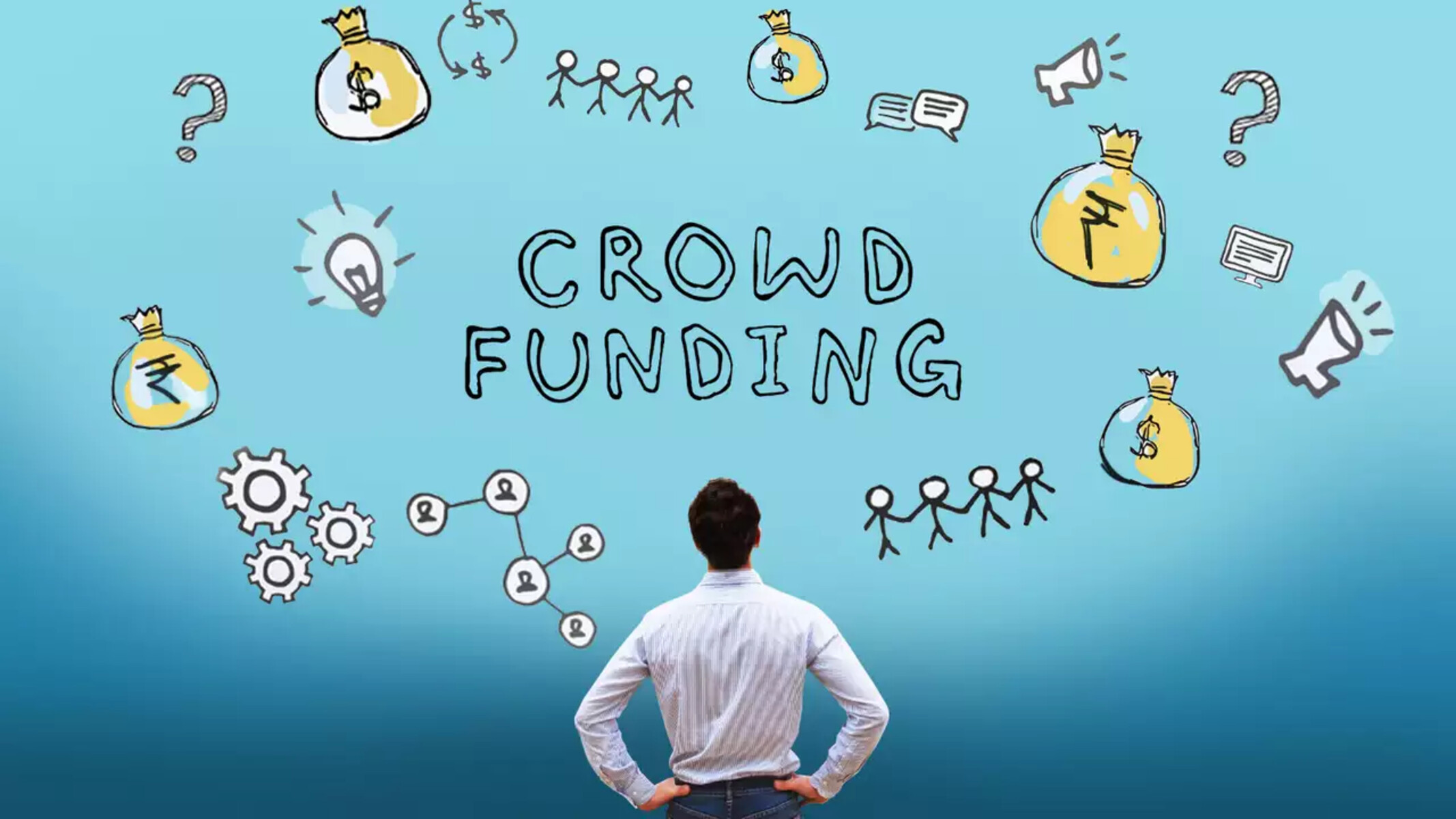Introduction
Indiegogo is a popular crowdfunding platform that allows individuals and businesses to raise funds for their creative, entrepreneurial, or charitable projects. While the platform was initially known for supporting donation-based crowdfunding campaigns, it has expanded its offerings to include equity crowdfunding as well.
Equity crowdfunding is a game-changer for both startups and investors. It allows individuals to invest in early-stage companies in exchange for equity ownership, giving them the potential for financial returns if the company succeeds. Indiegogo has embraced this model, providing a unique opportunity for investors to participate in the growth and success of innovative businesses.
With the introduction of equity investing on Indiegogo, individuals now have the chance to be early backers of promising startups and potentially earn significant returns. However, it’s important to understand the ins and outs of equity investing and the factors that can influence your earnings before diving into this investment opportunity.
In this article, we will explore how equity investing works on Indiegogo and discuss the potential earnings, success stories, risks, and considerations associated with this form of crowdfunding. By the end, you’ll have a solid understanding of what to expect and whether it’s the right investment strategy for you.
What is Indiegogo?
Indiegogo is a leading crowdfunding platform that connects individuals, entrepreneurs, and creators with potential backers from all around the world. Founded in 2008, the platform aims to democratize the funding process and empower innovators to bring their ideas to life.
Unlike traditional fundraising methods that rely on a few wealthy investors, Indiegogo allows anyone to contribute to projects they believe in. Whether it’s funding a short film, launching a new gadget, or supporting a social cause, Indiegogo provides a platform for individuals and businesses to showcase their projects and connect with a receptive audience.
What sets Indiegogo apart from other crowdfunding platforms is its commitment to offering a diverse range of funding options. In addition to the traditional donation-based crowdfunding model, where backers contribute without expecting financial returns, Indiegogo introduced equity crowdfunding in 2016.
Equity crowdfunding on Indiegogo enables individuals to invest in startups in exchange for equity ownership. This means that investors have a stake in the company’s success and can potentially earn financial returns if the business grows and thrives.
Indiegogo has established itself as a globally recognized crowdfunding platform, facilitating the launch of thousands of projects across various industries. The platform boasts a vibrant and engaged community of backers who are passionate about supporting innovative ideas and helping entrepreneurs turn their visions into reality.
Whether you’re an entrepreneur seeking funding for your project or an investor looking for exciting opportunities, Indiegogo provides a dynamic and accessible platform that connects creators and backers from all walks of life.
How does equity investing work on Indiegogo?
Equity investing on Indiegogo offers individuals the opportunity to become shareholders in early-stage companies and potentially earn financial returns. Here’s how it works:
1. Companies list their offerings: Startups looking to raise funds through equity crowdfunding submit their offerings to Indiegogo. These offerings typically include a detailed description of the company, its business model, financial projections, and the investment opportunity available to potential investors.
2. Investors review the offerings: As an investor, you have the opportunity to explore a wide range of investment opportunities on the platform. You can review the details provided by the companies, including their market potential, growth plans, and financials.
3. Decide on your investment: After conducting your due diligence, you can choose the companies you want to invest in. Each offering specifies the minimum investment amount, and you have the flexibility to invest as much as you are comfortable with, based on your financial goals and risk tolerance.
4. Complete the investment process: Once you’ve made your investment decision, you can proceed to complete the investment process. This typically involves signing legal documents, providing necessary information, and transferring the funds to the company through the platform’s payment system.
5. Monitor your investments: After making your investments, you become a shareholder in the companies you’ve chosen. It’s important to stay up-to-date with the progress of these companies and monitor their performance. Indiegogo provides tools and resources to help investors track their investments and access necessary information.
6. Potential returns: As a shareholder, your potential returns depend on the success of the companies in which you’ve invested. If a company achieves significant growth and profitability, you may earn returns through dividends or capital appreciation. However, it’s important to note that investing in startups carries inherent risks, and not all investments may yield positive returns.
Indiegogo acts as the intermediary between companies and investors, facilitating the investment process and providing a platform for communication and updates. It’s important for investors to thoroughly research and understand the offerings, as well as consider their own risk tolerance and investment objectives before engaging in equity investing on Indiegogo.
Potential earnings from equity investing on Indiegogo
Equity investing on Indiegogo presents investors with the potential to earn financial returns if the startups they invest in succeed and grow. While the exact earnings can vary significantly based on numerous factors, there are a few key aspects to consider:
1. Growth potential of startups: The potential earnings from equity investing depend on the growth potential of the startups you choose to invest in. Startups that experience substantial growth and profitability have a higher likelihood of generating returns for their investors. It’s essential to carefully evaluate the market potential, business model, and growth prospects of the companies you consider investing in.
2. Diversification of investments: Diversification is a crucial strategy in any investment portfolio. By spreading your investments across different startups and industries, you can mitigate the risk associated with investing in a single company. Diversification allows you to potentially benefit from the successes of multiple companies, increasing the chances of earning positive returns.
3. Timing of exit strategy: The timing of your exit strategy can significantly impact your potential earnings. Some investors may choose to exit their investments through initial public offerings (IPOs) or acquisitions. The success of these exit events can determine the ultimate returns for investors. It’s important to keep track of the progress of the companies you’ve invested in and stay informed about any potential exit opportunities.
4. Economic and market conditions: Economic and market conditions can influence the potential earnings from equity investing on Indiegogo. Factors such as industry trends, consumer demand, and overall market sentiments can impact the growth and profitability of startups. It’s crucial to stay aware of these external factors and evaluate their potential influence on your investments.
5. Active involvement and support: As an equity investor on Indiegogo, you can potentially contribute to the success of the startups you invest in beyond just providing capital. Active involvement, support, and guidance can help startups navigate challenges and accelerate their growth. By actively engaging with the companies you’ve invested in, you may increase the chances of earning higher returns.
It’s important to note that while there is potential for significant earnings, equity investing also carries inherent risks. Startups are inherently risky, and there is always the possibility of loss or failure. It’s crucial to carefully assess your risk tolerance, conduct thorough due diligence, and consider professional advice before engaging in equity investing on Indiegogo.
By approaching equity investing on Indiegogo with a realistic understanding of the potential earnings and associated risks, you can make informed investment decisions and potentially benefit from the growth and success of innovative startups.
Factors that can affect your earnings on Indiegogo
Several factors can influence the potential earnings you can generate through equity investing on Indiegogo. It’s important to consider these factors when making investment decisions and managing your portfolio. Here are some key factors that can have an impact:
1. Company performance and growth: The performance and growth trajectory of the companies you invest in play a crucial role in determining your earnings. Companies that demonstrate consistent growth, profitability, and scalability have a higher potential for generating positive returns. It’s essential to analyze the financial health, management team, and market presence of the companies before investing.
2. Market conditions and competition: The broader market conditions and the competitive landscape in which the startups operate can influence their growth and ultimately impact your earnings. Factors such as changes in consumer behavior, industry trends, and the emergence of new competitors can affect the success of the companies you’ve invested in. Staying informed about market dynamics is crucial when assessing potential earnings.
3. Exit opportunities: The timing and availability of exit opportunities can significantly influence the potential earnings from your investments. Exit events such as IPOs or acquisitions can provide avenues for investors to realize their returns. However, the success and timing of these events depend on various factors such as market conditions, company performance, and investor demand. Keeping track of potential exit opportunities is essential for maximizing your earnings.
4. Dilution and valuation changes: As startups progress and seek additional funding rounds, there is a possibility of dilution of ownership for early-stage investors. Dilution occurs when a company issues new shares, reducing the percentage of ownership held by existing shareholders. Changes in the valuation of the company can also impact the potential earnings. It’s important to carefully evaluate the terms of investment and understand potential dilution risks.
5. Investor rights and protections: The investor rights and protections offered by the companies you invest in can play a significant role in determining your earnings. It’s essential to assess the legal agreements and terms provided by the companies, including rights to information, decision-making, and potential exit opportunities. Strong investor protections can provide safeguards and increase the likelihood of earning favorable returns.
6. Industry and regulatory risks: Different industries and regulatory environments come with their own set of risks that can impact the potential earnings. Industries with higher regulatory hurdles or uncertain market conditions may carry more significant risks. It’s important to evaluate the specific risks associated with the industry in which the startups operate and how those risks might affect your earnings.
7. Investor engagement and support: Proactive engagement and support from investors can contribute to the success of the startups and potentially increase earnings. By leveraging your expertise, network, and resources, you can assist the companies in overcoming challenges and achieving growth. Building a strong relationship with the management team and actively participating in the growth strategy can enhance the potential for earning higher returns.
It’s important to note that these factors are not exhaustive, and each investment opportunity may have its own unique set of considerations. Before making investment decisions on Indiegogo, it’s vital to conduct thorough research, evaluate the risks and potential rewards, and seek professional advice if necessary.
By carefully considering these factors and managing your investments strategically, you can navigate the dynamic landscape of equity investing on Indiegogo and potentially maximize your earnings.
Success stories of equity investing on Indiegogo
Equity investing on Indiegogo has provided numerous success stories, showcasing the potential for investors to benefit from their early-stage investments. Here are a few notable examples:
1. Canary: Canary, a smart home security company, raised over $2 million through equity crowdfunding on Indiegogo. The company’s innovative all-in-one security system garnered immense support from backers, allowing them to bring their product to market and achieve significant growth. Canary’s success story demonstrates how equity crowdfunding on Indiegogo can propel startups to success.
2. Misfit: Misfit, a wearable technology company, launched its first product, a fitness tracker, on Indiegogo. The campaign was a massive success, surpassing its funding goal and generating a strong community of early backers. The company later went on to raise significant venture capital funding and was eventually acquired by Fossil Group. Misfit’s journey exemplifies how equity investing on Indiegogo can pave the way for further growth and acquisition opportunities.
3. Ampere: Ampere, a clean energy company, raised over $4 million through equity crowdfunding on Indiegogo. The company developed affordable and efficient solar power systems for residential and commercial use. The support from early investors on Indiegogo enabled Ampere to scale its operations and expand its product offerings. Ampere’s success story highlights the potential of equity investing on Indiegogo to drive innovation in the renewable energy sector.
4. Bluesmart: Bluesmart, a smart luggage company, successfully raised funds on Indiegogo to develop its groundbreaking smart luggage system. The campaign gained significant attention and generated substantial pre-orders from backers. Bluesmart’s success led to further investment opportunities and partnerships with major players in the travel industry. The story of Bluesmart showcases how equity investing on Indiegogo can provide visibility, validation, and growth for innovative consumer products.
5. Skulpt: Skulpt, a company specializing in fitness technology, launched its first product, a body composition analyzer, on Indiegogo. The campaign surpassed its funding goal and attracted a passionate community of health and fitness enthusiasts. The success on Indiegogo helped Skulpt secure additional funding and grow its product line. Skulpt’s success demonstrates the potential of equity investing on Indiegogo to support breakthrough innovations in the health and wellness industry.
These success stories illustrate how equity investing on Indiegogo can provide early-stage startups with the necessary funding, exposure, and support to propel their growth and success. By backing innovative ventures, investors have the opportunity to be part of these success stories and potentially earn substantial returns on their investments.
While these examples highlight the potential for success, it’s important to note that not all investments will yield positive results. Investing in startups carries inherent risks, and careful due diligence is necessary to assess the viability and potential of each opportunity.
By studying success stories, learning from past experiences, and making informed investment decisions, investors can navigate the world of equity investing on Indiegogo and potentially participate in the growth and success of promising startups.
Risks and considerations of equity investing on Indiegogo
While equity investing on Indiegogo can offer exciting opportunities for investors, it’s essential to recognize and consider the potential risks involved. Here are some key risks and considerations to keep in mind:
1. High-risk investments: Investing in early-stage startups is inherently risky. Startups have a higher likelihood of failure compared to more established companies. As an equity investor on Indiegogo, there is a possibility of losing your entire investment if the company fails to achieve its goals or faces unforeseen challenges. It’s important to carefully assess your risk tolerance and allocate only a portion of your investment portfolio towards high-risk ventures.
2. Lack of liquidity: Investing in startups through equity crowdfunding platforms like Indiegogo can limit your ability to quickly liquidate your investment. Unlike traditional stock markets, the secondary market for equity crowdfunding investments is not as developed. It may take several years before you can potentially realize a return on your investment, such as through an IPO or acquisition. Being prepared for a long-term investment horizon is crucial in managing expectations and liquidity considerations.
3. Uncertain valuations: The valuation of startups at the time of investment can be challenging to determine accurately. Valuations are often based on projections, assumptions, and future expectations, which may or may not materialize as anticipated. Fluctuations in valuation can affect the potential returns on your investment, as well as impact subsequent funding rounds and exit opportunities. It’s essential to closely evaluate the valuation methods and assumptions used by the companies before making investment decisions.
4. Regulatory and legal complexities: Investing in equity crowdfunding campaigns on platforms like Indiegogo involves navigating regulatory and legal complexities. The rules and regulations governing equity crowdfunding can vary across jurisdictions and may impact your ability to invest in certain offerings. Understanding the legal requirements, investor protections, and potential risks associated with equity crowdfunding is crucial to avoid any legal pitfalls.
5. Limited information and transparency: Early-stage startups often have limited operating history and financial track record. As an investor, you may have limited access to comprehensive information about the company, its operations, and its financials. While Indiegogo provides a platform for companies to share information, it’s important to note that the level of disclosure may vary among offerings. Conducting thorough due diligence, seeking professional advice, and actively engaging with the company’s management team can help mitigate information gaps.
6. Dilution and ownership rights: As startups seek additional funding rounds, there is a possibility of dilution of your ownership stake. This means that your percentage ownership in the company may decrease over time as more shares are issued. Additionally, the rights and protections offered to equity crowdfunding investors may vary from traditional venture capital investments. It’s important to review each offering’s terms and understand the potential impact on your ownership and voting rights.
7. Market and industry risks: Investing in startups exposes you to market and industry-specific risks. Economic downturns, changes in consumer behavior, and market competition can impact the growth and success of startups. Understanding the risks associated with the industry in which the startups operate, staying informed about market conditions, and analyzing the competitive landscape are crucial in assessing potential investment opportunities.
It’s important to thoroughly evaluate the risks and considerations associated with equity investing on Indiegogo before making any investment decisions. Conducting proper due diligence, diversifying your investments, seeking professional advice, and staying informed about the performance of the companies you’ve invested in can help mitigate some of these risks and enhance the potential for positive returns.
Conclusion
Equity investing on Indiegogo presents a unique opportunity for individuals to support early-stage companies and potentially earn financial returns. By participating in the growth and success of innovative startups, investors can diversify their portfolios and be part of the exciting world of entrepreneurship.
Throughout this article, we have explored the various aspects of equity investing on Indiegogo. From understanding the platform and how it works to evaluating the potential earnings and associated risks, it’s clear that this form of crowdfunding offers both opportunities and challenges.
While success stories highlight the potential for significant returns, it’s important to remember that investing in startups comes with inherent risks. Startups face numerous challenges, and not all investments will yield positive results. Thorough due diligence, careful risk assessment, and diversification can help mitigate some of the risks associated with equity crowdfunding on Indiegogo.
Furthermore, active engagement and support from investors can contribute to the success of startups and potentially enhance earnings. By leveraging your expertise, network, and resources, you can play an active role in the growth and development of the companies you’ve invested in.
Equity investing on Indiegogo is not for everyone. It requires a willingness to take on higher risks, a long-term investment horizon, and a realistic understanding of the potential rewards. Before engaging in equity crowdfunding, it’s crucial to assess your risk tolerance, conduct proper due diligence, and consider seeking professional advice if needed.
In conclusion, equity investing on Indiegogo can be an exciting and rewarding investment strategy for those who are willing to embrace the risks and actively support innovative startups. By carefully evaluating investment opportunities, diversifying your portfolio, staying informed, and managing risk effectively, you can potentially participate in the growth of promising companies and potentially earn favorable returns.












![How Does Crowdfunding Work? [Beginner-Friendly]](https://robots.net/wp-content/uploads/2020/07/How-does-crowdfunding-work-300x212.jpg)












